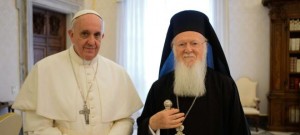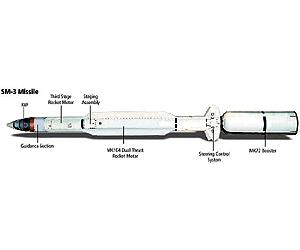Archive for March, 2013
Борис Березовский Распутин.
24 Mar 2013«Умер Борис Березовский – изумительно талантливый человек, игравший роль злого гения в российской политике позапрошлого десятилетия.
За все последние сто лет в России был только один другой персонаж, сравнимый с Березовским – фаворит последней императорской четы Григорий Распутин… 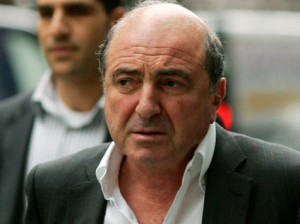
Начало 90-ых годов многие высшие деятели российской власти встретили в состоянии восторженного идеализма…
Это время политической невинности заведомо не могло длиться долго…
Дослужившийся в советскую эпоху до довольно скромной должности заведующего лабораторией в Институте проблем управления Академии наук Борис Абрамович Березовский оказался неожиданным символом этой потери невинности.
От прихоти этого демонического персонажа зависело: кто останется министром или даже премьером, кому суждено пасть, а кому возвыситься, кто должен стать сказочно богатым, а кому суждено обнищать…
Осенью 1996 года Бориса Абрамовича за заслуги в деле переизбрания президента Ельцина на второй срок назначили на его первую государственную должность – заместителя секретаря совета безопасности РФ…
Штаб-квартира Бориса Абрамовича в старинном особняке на Новокузнецкой улице в Москве была в те годы реальным нервным центром политической жизни страны. Министры, губернаторы и депутаты могли часами дожидаться ” хозяина” в многочисленных местных приемных, каждая из которых была предназначена для просителей строго определенного ранга…
Почему для многих именно он, а не, допустим, Ельцин является символом 90-ых? Мне кажется, что это произошло в силу комбинации случайного везения и многих объективных факторов. Березовский был блестящим манипулятором. Он умел создавать отношения с десятками и сотнями важных людей и превращать их в свои марионетки. Березовский умел создавать в уме изощренные политические и бизнес-комбинации, а затем неукоснительно проводить их в жизнь. Березовский был абсолютно безжалостен. Люди были для него пешками. Если возникала необходимость, он без колебаний смахивал их с шахматной доски. Березовский лучше всех ухватил дух времени. Он первым понял правила жизни в новой реальности и сумел стать жестоким королем этой реальности. Березовский был исключительно циничным человеком… »
Статья – Михаил Ростовский –Московский Комсомолец 23 марта 2013 Mikhail Rostovsky Moskovskij Komsomolets
Cipro, un bel grattacapo per la Russia.
24 Mar 2013 I russi sono letteralmente furibondi: non sono stati consultati dagli europei, quando Bruxelles ha proposto a Nicosia il prelievo forzoso dai conti correnti bancari.
Eppure Mosca credeva di essersi guadagnata la fiducia internazionale, avendo già prestato a Cipro nel 2011 ben 2,5 miliardi di dollari, mentre i “partner” continentali continuavano ad osservare la situazione creatasi sull’isola del Mediterraneo senza alzare un dito. 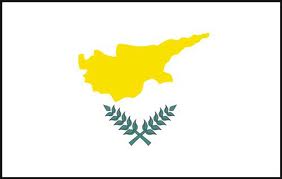
La delusione è tanto più grande, poiché tutti i meccanismi di consultazione con l’Ue si sono dimostrati inadeguati. Il gruppo di Paesi, che continua a vedere nell’ex superpotenza comunista un pericolo, ha imposto la scelta del prelievo forzoso proprio per colpire Mosca.
In queste convulse ore le cifre sono state confermate anche dalla Banca centrale di Cipro: su 68 miliardi nei forzieri, una trentina appartengono a russi. Il che potrebbe significare una perdita spaventosa. Il buco da coprire in fretta a Nicosia si aggira sui 5,8.
Persino società, controllate dallo Stato federale, hanno i conti bloccati sull’isola mediterranea, ha ammesso il premier Dmitrij Medvedev, che ha ipotizzato la creazione in qualche regione periferica dell’immenso gigante slavo di speciali aree off-shore.
“Molliamogli Kaliningrad-Koenigsberg (con la Prussia orientale) e prendiamoci Cipro”, scriveva ironicamente in un editoriale il popolare Moskovskij Komsomolets.
Non c’è magnate famoso o compagnia importante che non abbia una sede in quella che un tempo veniva considerata l’isola del tesoro, dove i soldi venivano messi al sicuro lontani dalle grinfie di burocrati corrotti. Adesso toccherà trovare ospitalità da qualche altra parte. La favola è finita!
Cipro è da anni ai primi posti tra i Paesi investitori diretti in Russia. In realtà, questi sono capitali di ritorno che, in pratica, godono nella Patria ritrovata di una giurisdizione diversa da quella nazionale. Ecco un’altra ragione della creazione di una piazza finanziaria del genere.
Gli europei hanno sfruttato l’occasione per rimettere ordine nello spazio dell’euro. Si sono levati un bel sasso dalle scarpe, considerando alcune chiacchierate operazioni messe a segno nell’ultimo decennio dagli spericolati oligarchi moscoviti.
Il rischio è, però, che questa operazione sia un boomerang. All’apertura delle banche cipriote i soldi dei russi (quelli non tassati) prenderanno certamente il volo. Il buco cipriota potrebbe allora trasformarsi in una voragine quattro volte maggiore. Il governo federale ha minacciato anche di cambiare la composizione delle proprie riserve valutarie, riducendo le quote dell’euro. Il che significherebbe giorni difficili per la moneta unica.
Dal 26 marzo a Durban è previsto il summit annuale dei Paesi emergenti del Brics (Brasile, Russia, India, Cina e Sud Africa). I russi, che hanno il loro tallone d’Achille dalla dipendenza eccessiva dal prezzo del petrolio, probabilmente prepareranno qualche sorpresa. Allontanarsi in un sol colpo da euro e dollaro? Difficile. Spingeranno intanto per il rafforzamento del cinese yuan, come valuta di riferimento. Il summit al Cremlino con la nuova dirigenza di Pechino è giunto proprio a puntino.
Tenere viva nel mondo la sete dell’Assoluto. Questa l’esortazione indicata da Papa Francesco nel discorso rivolto ai rappresentanti delle Chiese e delle comunità ecclesiali, del popolo ebraico e delle varie religioni, incontrati nella Sala Clementina in Vaticano. Poco prima, il Pontefice aveva incontrato il Patriarca ortodosso ecumenico, Bartolomeo I – con cui si è intrattenuto per circa 20 minuti e che più tardi ha ringraziato come “mio fratello Andrea” – e il Metropolita Hilarion, del Patriarcato di Mosca.
Bartolomeo I e Hilarion hanno donato al Papa due icone mariane. Nell’incontro nella Sala Clementina, Papa Francesco – che ha espresso la “ferma volontà” di proseguire il cammino nel dialogo ecumenico – ha poi ricordato lo speciale vincolo spirituale con il popolo ebraico, l’importanza della cooperazione con i fedeli di altre religioni e la meta dell’unità tra i credenti in Cristo.
Papa Francesco, rivolgendosi ai delegati delle Chiese Ortodosse e delle Comunità ecclesiali d’Occidente, ha indicato una prospettiva intima e peculiare, quella tracciata dal suo sguardo proteso verso Piazza San Pietro in occasione della Messa per l’inizio del ministero petrino:
“Ho riconosciuto spiritualmente presenti le comunità che rappresentate. In questa manifestazione di fede mi è parso così di vivere in maniera ancora più pressante la preghiera per l’unità tra i credenti in Cristo e insieme di vederne in qualche modo prefigurata quella piena realizzazione, che dipende dal piano di Dio e dalla nostra leale collaborazione”.
Il Pontefice, dopo aver chiesto ai rappresentanti delle Comunità cristiane una speciale preghiera affinché “possa essere un Pastore secondo il cuore di Cristo”, ha ricordato che il migliore servizio alla causa dell’unità tra i cristiani è vivere in pienezza la fede, dando “una testimonianza libera, gioiosa e coraggiosa”.
“Più saremo fedeli alla sua volontà, nei pensieri, nelle parole e nelle opere, e più cammineremo realmente e sostanzialmente verso l’unità”.
Il Papa si è poi rivolto ai rappresentanti del popolo ebraico, al quale – ha detto – ci lega uno “specialissimo vincolo spirituale”:
“Vi ringrazio della vostra presenza e confido che con l’aiuto dell’Altissimo, potremo proseguire proficuamente quale fraterno dialogo che il Concilio auspicava e che si è effettivamente realizzato, portando non pochi frutti, specialmente nel corso degli ultimi decenni”.
Salutando i rappresentanti di altre religioni, Papa Francesco si è rivolto in particolare ai musulmani:
“Apprezzo molto la vostra presenza: in essa vedo un segno tangibile della volontà di crescere nella stima reciproca e nella cooperazione per il bene comune dell’umanità”.
La Chiesa cattolica – ha spiegato il Pontefice – è consapevole dell’importanza del dialogo interreligioso:
“La Chiesa cattolica è consapevole dell’importanza che ha la promozione dell’amicizia e del rispetto tra uomini e donne di diverse tradizioni religiose; questo voglio ripeterlo: promozione dell’amicizia e del rispetto tra uomini e donne di diverse tradizioni religiose. (…) Essa è ugualmente consapevole della responsabilità che tutti portiamo verso questo nostro mondo, verso l’intero creato, che dobbiamo amare e custodire. E noi possiamo fare molto per il bene di chi è più povero, di chi è debole e di chi soffre, per favorire la giustizia, per promuovere la riconciliazione, per costruire la pace”.
Servizio completo – Radio Vaticana – Andrea Lomonaco – 20.03.2013
18 Mar: New SIPRI data on arms transfers – China replaces UK as world’s fifth largest arms exporter
China has become the fifth largest exporter of major conventional arms worldwide, according to new data on international arms transfers published by SIPRI. This is the first time China has been in the top five arms exporters since the end of the cold war. Overall, the volume of international transfers of major conventional weapons grew by 17 per cent between 2003–2007 and 2008–12.
The five largest suppliers of major conventional weapons during the five-year period 2008–12 were the United States (30 per cent of global arms exports), Russia (26 per cent), Germany (7 per cent), France (6 per cent) and China (5 per cent). This is the first time that the UK has not been in the top five since at least 1950, the earliest year covered by SIPRI data. China’s displacement of the UK is the first change in the composition of the top five exporters in 20 years.
The volume of Chinese exports of major conventional weapons rose by 162 per cent between 2003–2007 and 2008–2012, and its share of the volume of international arms exports increased from 2 to 5 per cent.
‘China’s rise has been driven primarily by large-scale arms acquisitions by Pakistan,’ said Dr Paul Holtom, Director of the SIPRI Arms Transfers Programme. ‘However, a number of recent deals indicate that China is establishing itself as a significant arms supplier to a growing number of important recipient states.’
Asian imports strengthen naval capabilities
In the period 2008–12 Asia and Oceania accounted for almost half (47 per cent) of global imports of major conventional weapons. The top five importers of major conventional weapons worldwide—India (12 per cent of global imports), China (6 per cent), Pakistan (5 per cent), South Korea (5 per cent), and Singapore (4 per cent)—were all in Asia.
Several countries in Asia and Oceania have in recent years ordered or announced plans to acquire long-range strike and support systems that would make them capable of projecting power far beyond their national borders. Last year notably saw the delivery of a nuclear-powered submarine from Russia to India and the commissioning of China’s first aircraft carrier, Liaoning.
Other regional players are seeking to establish or strengthen submarine fleets, including several South East Asian countries and Australia, which is also acquiring large surface warships and combat aircraft. These developments come at a time of heightening tensions over territorial disputes in the East and South China seas.
Austerity bites in the European arms market
Deliveries to European countries fell by 20 per cent between 2003–2007 and 2008–12. European states seem eager to abandon or reduce a range of arms import plans. During 2012 Italy and the Netherlands reduced their orders for F-35 combat aircraft from the USA, while Bulgaria, Croatia and Romania dropped plans for newly produced combat aircraft in favour of second-hand options.
Many European states are also seeking to export newly acquired combat aircraft that they can no longer afford to maintain. For example, Portugal is seeking buyers for its new fleet of F-16s and Spain is seeking to sell newly purchased Eurofighter Typhoons.
‘With the financial crisis in Europe, the withdrawal from Iraq and the drawdown in Afghanistan, we can expect to see Europe trying to export a considerable volume of surplus military equipment,’ said Mark Bromley, Senior Researcher with the SIPRI Arms Transfers Programme.
Other notable developments
- Russia accounted for 71 per cent of exports of major weapons to Syria in 2008–12 and continued to deliver arms and ammunition in 2012.
- The Arab states of the Gulf accounted for 7 per cent of world arms imports in 2008–2012. Missile defence systems were an important element in their latest arms acquisitions, with orders placed in 2011–12 for Patriot PAC-3 and THAAD systems from the USA.
- Deliveries of weapons system to Venezuela as part of its ongoing rearmament programme continued in 2012. Russia accounted for 66 per cent of transfers to Venezuela, followed by Spain (12 per cent) and China (12 per cent).
- Imports by North African states increased by 350 per cent between 2003–2007 and 2008–12, which was almost entirely responsible for a doubling (by 104 per cent) in imports by Africa as a whole.
- Sub-Saharan imports increased by just 5 per cent. Most countries in sub-Saharan Africa imported only small numbers of major weapons, but many of these have been used in internal conflicts or in interventions in conflicts in neighbouring states, most recently in Mali.
- Greece’s arms imports fell by 61 per cent between 2003–2007 and 2008–12, pushing it from the number 4 importer to number 15. In 2006–10 Greece was the top recipient of German arms exports and the third largest recipient of French arms exports.
Anti-missile defence, US change of plans. No interceptors for Europe. Russia and Poland not happy.
18 Mar 2013 To fund boosting its west coast defences, the US is to scrap plans to place SM-3 IIB missile in Europe and deploy them in Alaska.
The long-range interceptors were to have been the final phase of a program that Russia contends aims to counter its own missiles. Washington says the system is meant to stop missiles from Iran and North Korea.
U.S. Defence Secretary Chuck Hagel, however, stressed that plans are on track to deploy shorter-range missiles to Poland and Romania within the next five years.
“We feel no euphoria in connection with what was announced by the U.S. defence secretary, and we see no grounds for correcting our position”, said Russian Deputy Foreign Minister Sergei Ryabkov.
“This is not a concession to Russia and we do not see it as such,” he added. “We will continue a dialogue and seek the signing of legally binding agreements that all elements of the U.S. missile-defence system are not aimed at Russian strategic nuclear forces.”
In recent past U.S. defence and political officials stated that shorter-range interceptors would still be based in Poland as part of NATO’s missile defence system in Europe.
The Obama administration has planned to put medium-range interceptors in Redzikowo, in northern Poland, starting in 2018, as part of the NATO system.
The U.S. missile defence plans involve building up the system in Europe in four stages, with shorter- and medium-range interceptors to be deployed in the first three phases, and longer-range interceptors due in the fourth phase.
However, the fourth stage has not yet been funded by Congress, and there are indications the technology is not ready. At the same time they have been an irritant in relations between the U.S. and Russia.
Phase one of the system has already been deployed, with anti-missile interceptors on a ship in the Mediterranean Sea. Phase two is to include interceptors in Romania, then interceptors in Poland will come as part of phase three.
The U.S. missile defence system at Romania’s Deveselu military base is not affected either and will become operational in 2015 as planned.
Poland’s main aim in having the U.S. interceptors has been to have an American military presence on Polish soil in the belief it will increase the country’s security, particularly given fears that Russia could one day try to dominate the region again.
The US will now add 14 interceptors against incoming missile threats, to the 30 already in place in California and Alaska by 2017.
Sources: PAP, Reuters, AP, AFP
Большой театр, «хватит!»
17 Mar 2013 «Большой театр, бывший когда-то национальной гордостью, стал большим национальным позором. Превратился в театр оперОв и балета. Из рубрики «культура» перешел в «криминал» …. 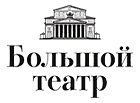
Надоело читать, слушать, смотреть все это. Даже думать на эту тему надоело. Подавляющему большинству добропорядочных граждан, уверен, уже абсолютно все равно, кто там у вас кого бюджетно заказал за 50 тысяч рублей (цена пары дюжин билетов на галерку у облепивших театр спекулянтов). К вашему прогоревшему до золы очагу культуры есть только одно пожелание: чтобы вы все там в хорошем смысле слова заткнулись.
Господин Путин или господин Медведев … Наймите новое руководство (лучше бы иностранное, без преступно-артистических связей на территории РФ), которое заново ее наберет. Пусть частью из нынешних артистов, но непременно — заново. Чтобы и духа не осталось от этих диких враждующих тейпов…
Статья – Айдер Муждабаев Московский Комсомолец № 26184 от 13 марта 2013 г. Ayder Muzhdabayev Moskovskij Komsomolets.
Весь католический мир ликует, встречая новоизбранного Папу. Кардинал Хорхе Марио Бергольо отвечает пожеланиям и тех, и других. Он аргентинец, родился в Буэнос-Айресе, но в многодетной семье итальянского железнодорожного рабочего, перебравшегося в поисках лучшей жизни в Новый Свет…
Священником он стал там же, в Аргентине, однако всегда помнил о своём происхождении. Кроме своего основного статуса — должности Архиепископа Буэнос-Айреса, он занимал несколько важных постов в Римской курии: является членом Конгрегации по делам духовенства, Конгрегации богослужения и дисциплины таинств, Конгрегации институтов посвященной жизни и обществ апостольской жизни, а также он — член Комиссии по Латинской Америке и Папского Совета по делам семьи. 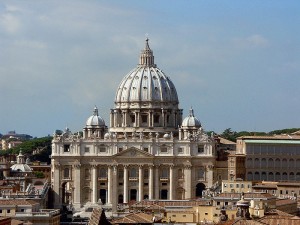
«Я думаю, что конклав выбрал подходящего человека в подходящий момент, – заявил «МК» итальянский журналиста Джузеппе Д’АМАТО. – Аргентинец итальянского происхождения — это очень удачный компромисс, о котором, очевидно, кардиналы думали давно. Папу Франциска выбрали уже после пятого тура голосования — когда на конклаве все происходит так быстро, это значит, что идея была не нова… Замечательным фактом является и то, что кардинал Бергольо имеет итальянские корни, великолепно говорит по-итальянски, хорошо знает историю католической церкви в стране, часто бывает в стране. В течение долгого времени он даже был членом областного общества Пьемонте! К тому же, само за себя говорит выбранное им имя — Франциск. Святой с этим именем считается покровителем Италии — как известно, каждая католическая страна имеет «своего» святого».
Однако кардинал Хорхе Бергольо — вовсе не такая неожиданность для католической церкви, как можно было бы подумать. Если оглянуться назад, то можно понять, что фортуна улыбнулась аргентинцу предсказуемо — со второй попытки. В 2005 году кардинал Бергольо был (в отличие от минувшего конклава) в числе «фаворитов» среди возможных кандидатов на Святой престол. По неподтвержденным данным, кардинал Бергольо даже набрал треть от необходимых голосов на конклаве 2005 года, однако добровольно отказался от них. Неизвестно, можно ли верить этому: ведь конклав — мероприятие секретное.
– Кардинал Бергольо — это замечательный выбор для католической церкви, – комментирует Джузеппе Д’АМАТО. – Он был учеником кардинала Мартини из Милана, одного из самых влиятельных кардиналов последних лет. К сожалению, он недавно умер… Но кардинал Мартини был известен во всей церкви, не только в Италии. Нынешнее избрание папы — не такая уж неожиданность для церкви и страны, ведь на конклаве 2005 года кардинал был одним из папабилей и считался основным соперником Йозефа Ратцингера. Поэтому хоть на нынешнем конклаве Бергольо и оказался аутсайдером, это не говорит против него.
«Новый понтифик — иезуит, а это означает значительные перемены в церковной политике», – считает Джузеппе Д’Амато.
В церковных кругах кардинал Бергольо известен как человек умеренных взглядов, всегда готовый к богословскому диалогу. Стоит надеяться, что это качество поможет ему справиться с ношей. “Множество вызовов ожидают нового Папу внутри Церкви. От конгрегаций кардиналов пришло требование об обновлении механизма Курии, который в последние годы понтификата Бенедикта XVI продемонстрировал свое несовершенство. Речь идет не только о вопросах назначений – требуется реформирование структур”, – рассуждает газета «La Stampa».
Статья – Дарья Тюкова – Московский Комсомолец № 26186 от 15 марта 2013 г.
“La Chiesa ortodossa russa saluta la scelta del Conclave – ha dichiarato il diacono Aleksandr Volkov, portavoce del Patriarca di Mosca e di tutte le Russie Kirill -. E come in passato spera che i rapporti tra le due Chiese si sviluppino in modo positivo”. 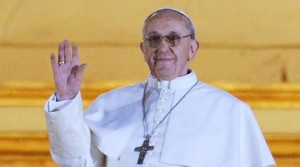
Anche il mondo ortodosso ha seguito da vicino l’elezione del Pontefice. I principali canali televisivi hanno tenuto in questi giorni lunghe dirette da Roma ed i notiziari odierni hanno aperto con le immagini di Papa Francesco.
L’autorevole protodiacono Andrej Kuraev ha scritto sul suo blog di avere “ottime sensazioni” e si è augurato che la vicinanza del nuovo Pontefice al popolo semplice portino successo alla sua missione.
Nei giorni scorsi il capo del settore informativo del Patriarcato di Mosca Vladimir Legojda ha ribadito che il tanto atteso incontro tra il Papa ed il Patriarca di Mosca dovrà essere “il risultato di passi seri intrapresi e di decisioni importanti”.
Dal Sud America il rappresentante della Chiesa ortodossa russa all’estero, il vescovo di Caracas Ioann, ha ricordato l’eccezionale aiuto logistico fornito da monsignor Bergoglio all’organizzazione di una mostra di icone nel dicembre scorso presso l’Università cattolica argentina a Buenos Aires. “E’ una persona semplice – ha detto il prelato – ed ha un buon rapporto con la Russia”.
By 2017 Northern America will achieve the energy independence and will start to export oil and gas abroad. New competitors to Russia are emerging everywhere in the world.
* * *
“In a reported world first, Japan extracted natural gas from methane hydrate, considered a next-generation energy source, in the Pacific seabed off Aichi Prefecture, the Ministry of Economy, Trade and Industry said.
“We started production of a certain amount of methane gas from around 9:30 a.m.,” a ministry official said, noting that if the gas can be extracted without any problems for about two weeks in the ongoing trial, it will be a “major step” toward future commercial development of the resource.
Large concentrations of methane hydrate are believed to exist under the seabed around Japan. Last October, a research team from Meiji University discovered the substance under the seabed in the Sea of Okhotsk and in the Sea of Japan off Akita, Yamagata and Niigata prefectures. There is also a high possibility that it also exists under the seabed off Shimane Prefecture.
Total deposits of methane hydrate around Japan are estimated to be sufficient to cover domestic consumption of natural gas for about 100 years… ”
Full Article – Kyodo – Japan Times
“Let’s first say that the economic crisis is not a euro crisis. There are also economic difficulties in countries that do not have the euro – while at the same time, there are eurozone countries that don’t have any difficulties. In our accession treaty there is a part that says that we will introduce the euro as soon as possible. So it really is an obligation based on that treaty.
In the case of Lithuania, we already de facto have the euro because we have a currency board system that pegs the litas to the euro at a fixed, strong rate. And in reality, our monetary policy very much depends on the European Central Bank. We do not have monetary instruments of our own. We have only the obligations and restrictions and not the benefits that we would have if we had the euro. There are enough reasons to join the eurozone as soon as we can.”
Interview – Deutsche Welle – March 2013.
Welcome
We are a group of long experienced European journalists and intellectuals interested in international politics and culture. We would like to exchange our opinion on new Europe and Russia.
Categories
- Breaking News (11)
- CIS (129)
- Climate (2)
- Energy&Economy (115)
- EU Eastern Dimension (85)
- Euro 2012 – Sochi 2014 – World Cup 2018, Sport (43)
- Euro-Integration (135)
- History Culture (198)
- International Policy (261)
- Military (74)
- Interviews (18)
- Italy – Italia – Suisse (47)
- Odd Enough (10)
- Poland and Baltic States (126)
- Religion (31)
- Russia (421)
- Survey (4)
- Turning points (4)
- Ukraine (176)
- Российские страницы (113)
Archives
- November 2020
- October 2020
- September 2020
- August 2020
- July 2020
- May 2020
- April 2020
- March 2020
- January 2020
- December 2019
- November 2019
- October 2019
- September 2019
- August 2019
- July 2019
- June 2019
- May 2019
- April 2019
- March 2019
- February 2019
- December 2018
- November 2018
- October 2018
- September 2018
- August 2018
- July 2018
- June 2018
- May 2018
- April 2018
- March 2018
- February 2018
- January 2018
- December 2017
- November 2017
- October 2017
- September 2017
- August 2017
- July 2017
- May 2017
- March 2017
- January 2017
- December 2016
- November 2016
- October 2016
- September 2016
- July 2016
- June 2016
- May 2016
- April 2016
- February 2016
- January 2016
- November 2015
- October 2015
- September 2015
- June 2015
- April 2015
- March 2015
- February 2015
- January 2015
- December 2014
- November 2014
- October 2014
- September 2014
- August 2014
- July 2014
- June 2014
- May 2014
- April 2014
- March 2014
- February 2014
- January 2014
- December 2013
- November 2013
- October 2013
- September 2013
- August 2013
- July 2013
- June 2013
- May 2013
- April 2013
- March 2013
- February 2013
- January 2013
- December 2012
- November 2012
- October 2012
- September 2012
- August 2012
- July 2012
- June 2012
- May 2012
- April 2012
- March 2012
- February 2012
- January 2012
- December 2011
- November 2011
- October 2011
- September 2011
- August 2011
- July 2011
- June 2011
- May 2011
- April 2011
- March 2011
- February 2011
- January 2011
- December 2010
- November 2010
- October 2010
- September 2010
- August 2010
- July 2010
- June 2010
- May 2010
- April 2010
- March 2010
- February 2010
- January 2010
- December 2009
- November 2009
- October 2009
- September 2009
- August 2009
Our books





